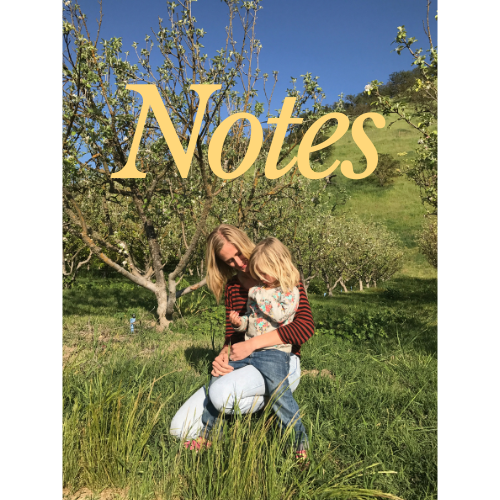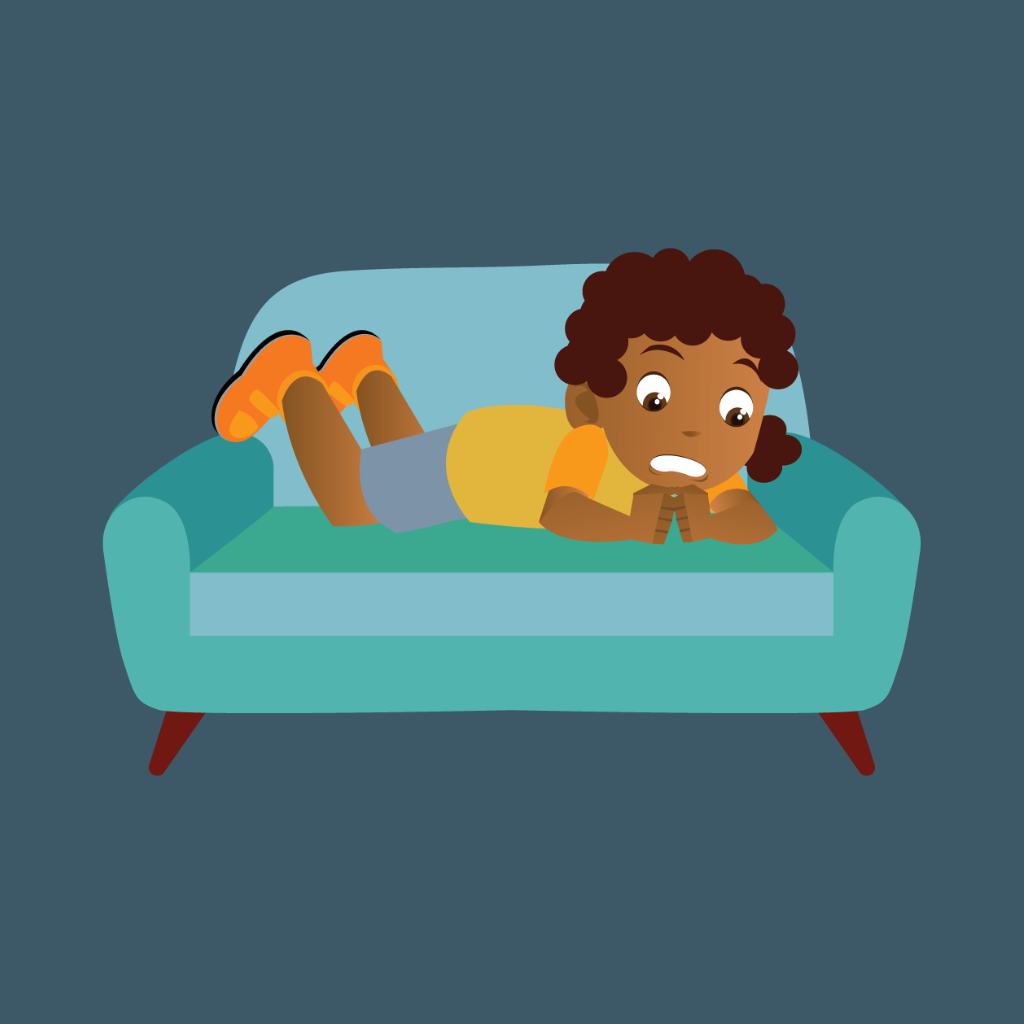How to “Reset” your Child’s Nervous System When They Seem Stuck: 3 Steps You Can Use to Provide a Path Back to Regulation
Does your child seem to get “stuck” whether in a meltdown, tearful or angry state, or a fixation on a certain outcome like getting a particular toy or completing a project? This could mean that your child’s nervous system is in a processing state of dysregulation and they may need your help to shift back into a state of regulation
Whether or not it feels reasonable, Behavior is *always* about Safety
Do you ever wonder why your child acts the way they do? Based in research from neuroscience and from polyvagal theory, as a therapist I always look at the nervous system's PERCEPTION of safety. If a person perceives that something in the environment isn't safe, or if the body experiences a sensation that is interpreted as a threat, the body may go into a fight/flight/freeze state. This makes sense when we think about our kid experiencing something like falling off their bike or not getting what they want, but sometimes we see our kids in intense meltdowns or shutdowns for no apparent reason. If we look at the behavior from the same lens, however, we will find important clues for how their body is interpreting the world in that moment and therefore ideas for helping our child shift back into a state of calm and focus.
Why Our Kids Are Experiencing School to Summer Transition Dysregulation and What to Do About It.
This transition can bring anxiety and relief and excitement for both parents AND kids. Some of us parents are feeling happy for the relief summer can bring when it comes to fewer demands and schedule conflicts, while others of us feel anxious about how our kids will be cared for while we work, the costs of summer camps, our kids’ response to lack of structure, or to the stress of making travel plans.
Why does my child need so much help getting ready and out the door?
You probably already know what it feels like to have to chase your child around, reminding them that it’s time to go, finding them clothes, telling them to eat their breakfast, and finally losing it as you scramble out the door just in time or crazy-late. You are left wondering, "What's normal? Am I expecting too much? Why does my kid need so many reminders and so much hands-on help?
How do I support my child’s neurodevelopmental differences and needs this Summer?
Pay attention to your child's neurotype when planning your summer. Summer already represents a season of change and is followed quickly by another school year. This can cause underlying anxiety for many.
How to Make Your Home Sensory-Safe
If your child is struggling with regulation, self-esteem, sensitivity, and relational connection, it’s important to look into how their environment is impacting them.
You can start by getting into the right mindset: the mindset of understanding the needs underneath your child’s difficulties.
As a child therapist, I find myself answering some of the same questions and providing some of the same suggestions time and time again. There is a common theme that parents come to me with, and there are a few answers that they experience as life-changing, every time I give them. We first tackle relationship, the space, and the schedule.
How to Use the Polyvagal Chart
When you look at this chart you will see red, green, and blue pathways to represent a simplified organization of the autonomic states of regulation. Each color pathways has a list of signs. For example, children who are in a fight response (red zone of regulation) might need a very different strategy to get their body feeling safe and calm again than a child who is in a state of shutdown (blue zone of regulation).
Does My Child Have Anxiety?
Your child could be feeling anxious if you see:
Excessive worries throughout the day
Consistent worries about specific topics, like social situations, separation from a parent, death, loss, or even benign things like taking a bath.
Your child is startled easily and often, and develops fears about things that startle them, such as loud noises, bugs, sudden movements, or risk-taking
Intense, frequent “shyness” or a shutdown response around peers, unfamiliar adults, or other new social situations
“sticky” thoughts, or thoughts/ideas that they can’t seem to get rid of
What Causes My Child's Low Self Esteem?
Have you ever heard your child say “I hate myself,” “I suck at that,” “I’m the worst,” “ No one likes me?” Or, do they show low frustration tolerance, difficulty taking risks, inability to lose a game without losing it, or refusal to take responsibility, say “sorry” or stick with a problem? Changes are, you’re already sensing that your child is, underneath all of this, struggling to like themself and struggling to feel confident.
How Can I Help My Child Calm Down?
When your child is pushing back, melting down, scared, angry, or upset, you as the parent can do these 5 simple actions to help your child get calm. SAFETY is key here. When your child feels safe, seen, and secure, their nervous system naturally moves from a state of defensiveness/fight or flight, to a state of calm.
Preventing Overstimulation in Highly Sensitive Parents: 6 Actions Parents Can Take Every Day
Anxiety and Stress Reduction Strategies for Highly Sensitive Parents. A licensed Family Therapist and Child Play Therapist's tips on how to manage emotions, reduce stress and conflict, and care for yourself as a highly sensitive parent who is prone to overwhelm
Stress, Change, and Uncertainty Does Affect Kids: Signs My Child is Feeling Anxious
How Can I respond to my child’s worries, and what do I do if I think they have Anxiety?
4 Child-Therapist Strategies to Build Your Child’s Problem-Solving Skills.
When I work as a therapist with your 1st-6th grade child, I’m blending play therapy with brain science, developmentally appropriate education about relationships, families and mental health, plus resilience-building and problem-solving skills. Play Therapy and problem-solving time can be effective for the child who is having trouble in school, has trouble regulating their body, or is anxious.
Dads experience postpartum depression, also called paternal depression, at similar rates to Moms, yet there is very little support and identification of it.
Postpartum Paternal Depression (Postpartum Depression in Dads) can look like irritability, aggression, substance use, risk-taking behavior, Distancing, Distractions, Difficulty seeing your partner’s needs or pain. Symptoms occur in fathers during pregnancy or 0-12 months after your baby is born.
Parent and Child Relationship Grows the Brain in a Sustainable Way.
As a child counselor I want to describe how specific early infancy and childhood experiences develop executive function skills. Genetics, environment, activities, policies, and programs point to the child’s experience of safety and attunement in a relationship as what grows the brain. Relational Therapy and play therapy for children can actually change and grow the brain!
“They’re so little, they probably won’t remember:” Misconceptions about trauma in infants and toddlers
Children DO remember events that happened in infancy, but not usually in a way that they can talk to us about. Typically it’s embedded in their physiology and may come out through play behaviors, feeding, relating, or regulatory behaviors. Play Therapy can help resolve trauma from infancy or early childhood.
Hyperactive, Oppositional, Impulsive: Understanding the Emotional Life of the Sensitive/ADHD Child
Opposition and Defiance are PROTECTIVE. So, let’s hear his perspective on Oppositionality: It is a response to something. It is a reflection of part of the child’s relationship with the adult world. The ADD Child often can be rigid, obsessive, clinging to a desire. They have a heightened response to force or pressure from authority and this is often seen as “oppositional behavior” It is important to understand this because the ADD child is extra sensitive to force or pressure, due to the child’s innate sensitivity.
"I win! No, I win!" Competition and Rivalry From Preschool-Elementary Age
All families have a relationship to competition, and it often comes with a host of big feelings. If there are siblings in the house, there is also most likely sibling rivalry. Sibling rivalry might be all-day, every-day. Fights, comparisons, “hey, you gave her more orange juice than me!” or “Why does HE get to sit in the front seat EVERY time? You like him more than me!”
Did My Child Inherit My Anxiety?
Does your child often seem shy and fearful around new people? What about specific fears, perhaps of bugs, flying objects, loud sounds, or new situations? Or do you have a baby who has trouble sleeping, can’t be put down, or seems like they are constantly crying? Many children experience persistent, specific fears and worries that impact their ability to complete daily tasks
TEMPERAMENT--THE KEY TO BIG FEELINGS AND BEWILDERING BEHAVIORS
Does your little one just seem to feel all the feelings in such a big way? When they are happy, they are super joyful, but disappointments can be devastating? Or are they a bit chill, or even keel? One with a high level of intensity may laugh at something new, one with low level may just give a clap.
Stay Updated
Feel free to subscribe and I’ll send you things as I create them.

















